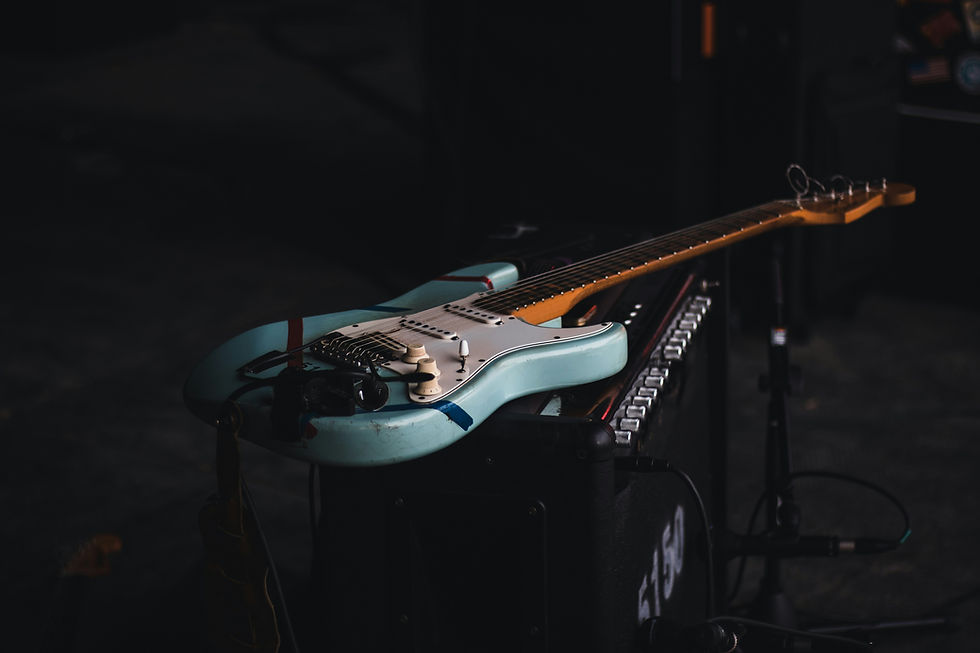Why You Might Want to Keep a Music Journal
- Michelle Monette

- Dec 18, 2023
- 3 min read

As musicians, we often like to explore ways to improve how we approach working on music. Whether we want to get more mileage out of our practice time, or write songs more effectively, we understand there are always ways to work smarter. One particularly effective tool is a simple journal. We can turn any notebook—physical or digital—into a music journal that will assist us as we move through our musical goals and projects. Using a journal allows us to collect valuable data and insights around our music habits, keep track of important details, and stay focused on the music-making process.
One of the most exciting parts of being a musician is having endless opportunities to learn, grow, and improve throughout our lives. Inevitably, though, there will be points where we hit a plateau—where we feel stuck or where we’re not making the progress we’d like. When this happens, we know we need to make a change. But it can be difficult to know exactly what we need to do differently. Taking random shots in the dark to see what might yield improvements is an inaccurate and frustrating waste of time. If we instead use a music journal to track details about when, what, and how we work, we’ll know exactly what we’ve been doing and where we can begin making adjustments. For example, if you’re not improving on your instrument as quickly as you think you should be, you’ll be able to see whether something is lacking in your current practice routine. After reviewing the notes in your journal, you might notice your practice habits are sporadic, or that you’re working on too many things at one time. Once you have a hypothesis based on this data, you can experiment with changes you think will be effective—like practicing more frequently and focusing on fewer things, as would be the case for our example. As you continue to record details about your practice and creative habits, you can evaluate your progress and adjust accordingly; eventually zeroing in on systems, routines, and methods best suited for what you’re aiming to accomplish.
With the amount of material there is for us to work on, and the volume of projects we may be juggling at any given moment, there will be a lot of details to keep track of. This is an exceedingly difficult task if we try to rely on our brains alone to handle this information. We run the risk of forgetting important items and wasting mental energy trying to remember everything in the moment we need it. Using your journal will not only prevent you from forgetting these vital details and allow you to reduce your cognitive load, it will also save you valuable time.
Having a clear idea of what we want to accomplish as musicians provides us with a meaningful source of inspiration. But the road to get there is often a long one, and invariably there will be points when we experience impatience and frustration with not being right where we want to be. During these moments, it’s helpful to emphasize the process rather than the prize. Keeping a log of all the work we’ve been doing can help us focus more on being satisfied with the day-to-day musical activities we pursue. When we have moments where progress is slow, or when we feel like a project isn’t ever going to come together, we can look to our journals as evidence that we’re well on our way.
If you’re struggling on your musical journey, or if you’re simply looking for a way to make it even better, consider keeping a music journal. At first, a journaling practice might feel like an unnecessary extra step. But if you stick with it, those extra few minutes you spend writing each day will save you immeasurable time and energy in the long run. You can begin by recording basic details, like the date and what you worked on. As journaling becomes a habit, you can start to include anything vital to what you’re working on, such as tempos, keys, sections of a piece in progress, and notes about what needs improvement. Armed with this simple tool, you’ll likely feel more confident and in control of your musical path and progress.







Comments